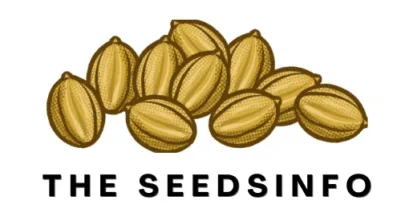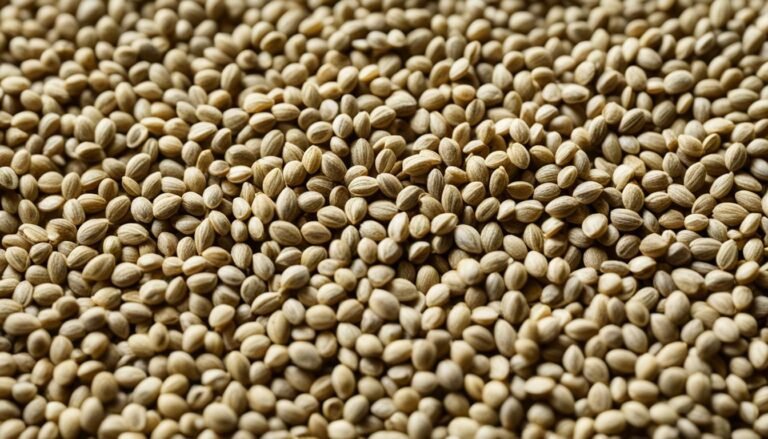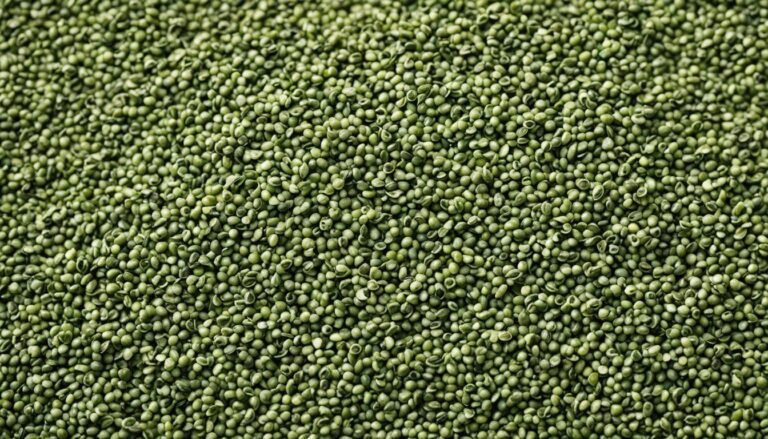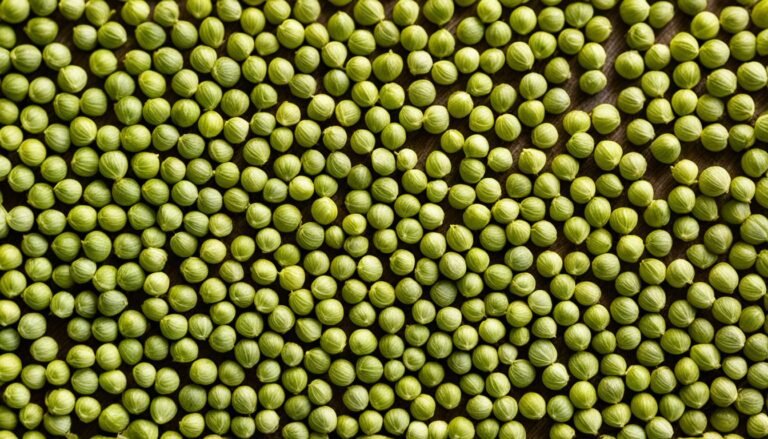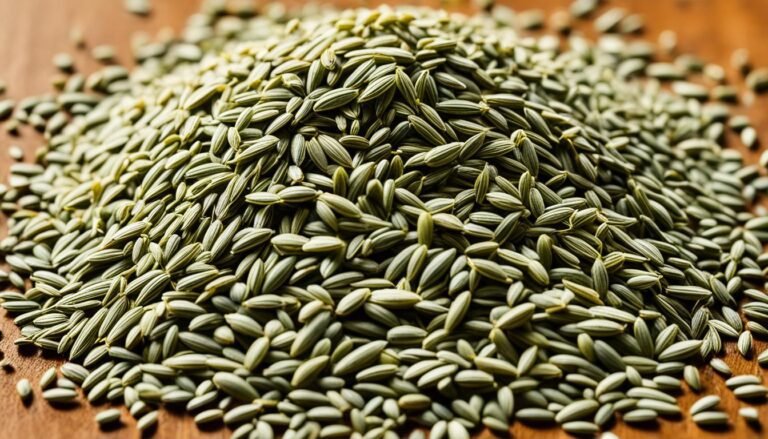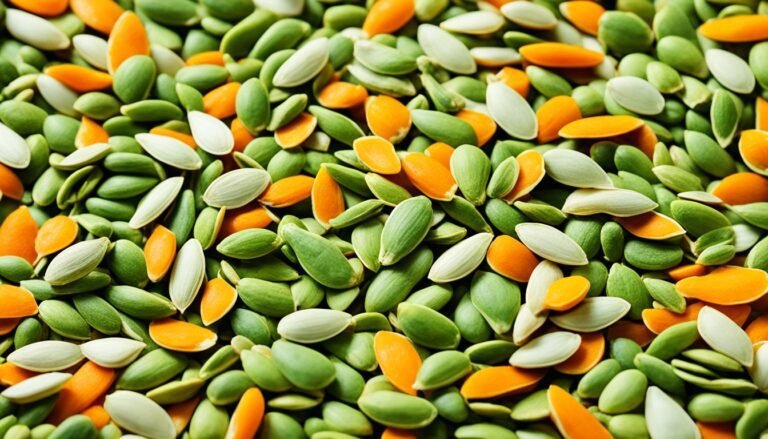Fennel Seeds for Constipation in Babies: Natural Relief
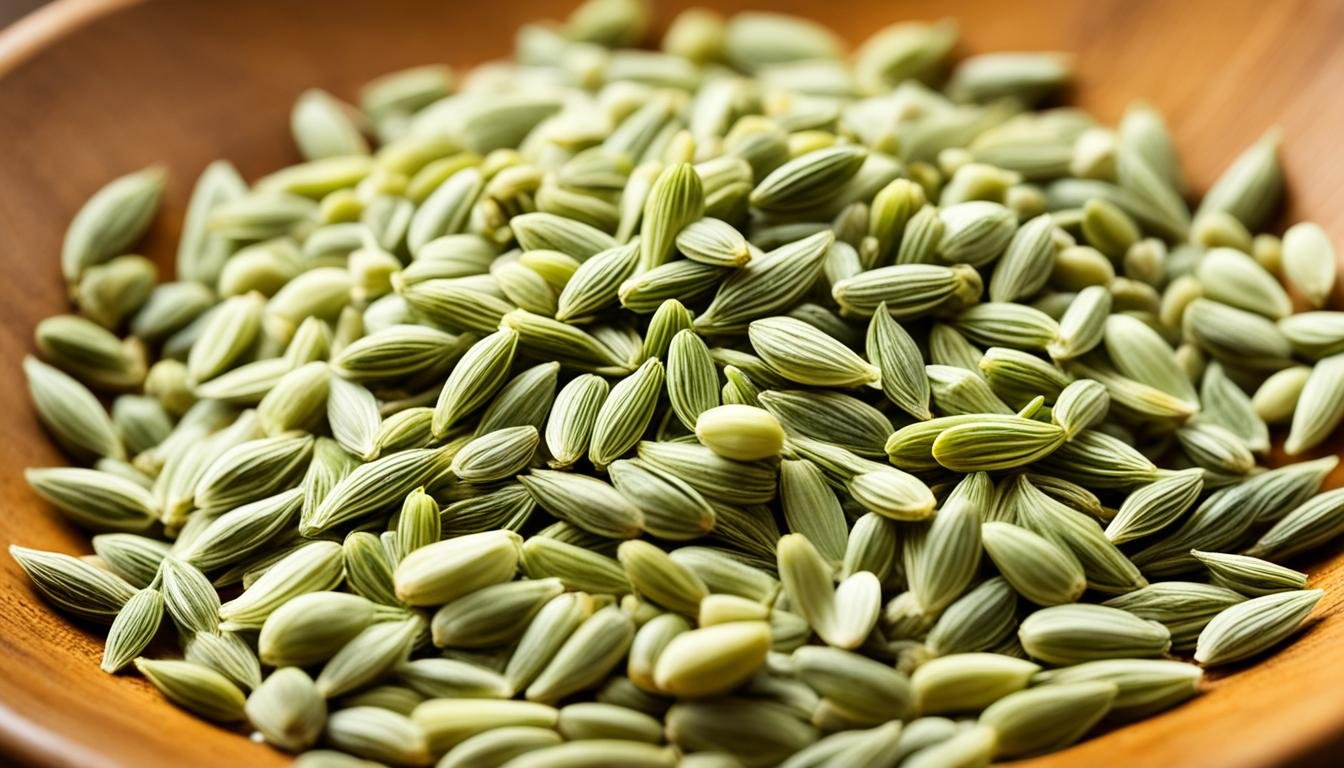
As a parent, dealing with your baby’s constipation can be tough. Signs like refusing to eat or a tight tummy can be worrying. Traditional methods like fiber-rich foods and plenty of water can help. But have you thought about fennel seeds for constipation in babies as a solution?
This ancient remedy has been around for centuries, helping with digestive issues, including constipation in kids. So, what makes fennel seeds so good, and how can you add them to your baby’s diet? Let’s explore this together.
Ever wondered why fennel seeds are great for easing baby constipation? It’s all about their nutritional value and special properties. They’re full of fiber, which helps with bowel movements and reduces discomfort. Plus, they have anti-inflammatory and antispasmodic qualities that calm the digestive tract. This makes them a strong natural option for your baby’s constipation.
What are Fennel Seeds?
Fennel is a herb with a sweet smell that started in the Mediterranean. Now, it’s found all over the world. The plant, known as Foeniculum vulgare, is packed with nutrients like potassium, antioxidants, and fiber. Fennel seeds come from this plant and have been used for food and medicine for a long time.
Origin and Botanical Details
The fennel plant grows up to 2.5 meters tall and has feathery leaves and yellow flowers. Its fruits, the fennel seeds, are oval and taste like licorice. Originally from the Mediterranean, fennel is now grown in many warm places around the globe.
Fennel seeds are full of nutrients. For example, 100 grams have a lot of calcium, magnesium, and potassium. They also have Vitamin C and fiber, which help with digestion.

| Nutrient | Amount per 100g |
|---|---|
| Calcium | 1196 mg |
| Magnesium | 385 mg |
| Phosphorus | 487 mg |
| Potassium | 1694 mg |
| Vitamin C | 21 mg |
| Dietary Fiber | 40 mg |
In Indian cooking, fennel seeds are often used and are safe for kids. They help with digestion and breathing problems thanks to compounds like cineole.
Nutritional Profile of Fennel Seeds
Fennel seeds are packed with nutrients, making them great for a baby’s health. These small seeds are full of vitamins, minerals, and other good stuff.
Just one teaspoon (2g) of whole fennel seeds brings a lot of important nutrients. These include:
- 0.796g of dietary fiber
- 23.9mg of calcium
- 0.371mg of iron
- 7.7mg of magnesium
- 33.9mg of potassium
These seeds are also full of fennel seed vitamins like A, C, B6, niacin, riboflavin, and thiamine. They have a lot of fennel seed minerals too, including selenium. Selenium is key for liver health and cleaning the body.
Fennel seeds are a top source of fennel seed fiber, with 39.8g per 100g. This fiber helps with regular bowel movements and keeps your baby’s digestive system healthy.

Fennel seeds are a great choice for a baby’s diet. They offer many essential nutrients for growth and health.
Signs of Constipation in Babies
As a parent, knowing the signs of constipation in your baby is key. Babies often strain when they go to the bathroom because their muscles aren’t strong yet. If your baby is refusing to eat, has a taut tummy, or you notice a streak of blood in their stool, it could mean they have constipation. This issue can be painful and may cause bigger problems if not treated.
Here are some common signs of constipation in babies:
- Difficulty passing stools or straining during bowel movements
- Infrequent bowel movements, sometimes going days without a dirty diaper
- Hard, dry, or pebble-like stools
- Abdominal pain or discomfort
- Decreased appetite or refusal to eat
- Irritability or fussiness
- Blood in the stool, which may indicate small tears in the anus (known as fissures)
It’s crucial to address constipation in babies quickly. This helps prevent more discomfort and serious issues. By knowing the signs, you can help your baby feel better and support their digestive health.

Fennel Seeds for Constipation in Babies
If your little one is having trouble with constipation, think about using fennel seeds. These seeds have been a go-to for digestive problems, like constipation in babies.
Fennel seeds are natural laxatives that help with regular bowel movements. They make the stool softer, making it easier for your baby to pass. Plus, they have digestive properties that soothe intestinal cramps and colic, which often come with constipation in babies.
To use fennel seeds for your baby’s constipation, make a soothing fennel tea or water. Boil a teaspoon of fennel seeds in a cup of water, then let it steep for 5-10 minutes. Give your baby a few spoonfuls of the warm liquid a few times a day. You can also mix this fennel “tea” into your baby’s bottle or food.
Always talk to your pediatrician before trying new remedies. They can tell you the right amount and how to use it for your baby. With patience and the right method, fennel seeds can be a gentle, natural way to help your baby with constipation.

Preparation and Dosage
Fennel Water and Tea
Fennel seeds can be hard for babies to chew. Luckily, you can easily add fennel to your baby’s diet with fennel water and tea.
To make fennel water, soak a spoonful of fennel seeds in water overnight. In the morning, strain the water and give your baby a spoon or two as needed. This makes it easy for your baby to get the good stuff from fennel.
For older babies and toddlers, fennel tea is a good choice. Boil a tablespoon of fennel seeds, let it steep, then strain it. You can add a little honey to make it taste better. Always talk to your pediatrician about how much fennel seed to give your baby for constipation.
| Preparation Method | Dosage |
|---|---|
| Fennel Water | 1-2 teaspoons of fennel seeds soaked overnight in 1 cup of water |
| Fennel Tea | 1 tablespoon of fennel seeds boiled in water, strained, and sweetened with honey |
Always talk to your pediatrician before giving your baby new foods or supplements, like fennel water or tea. They can tell you the best way to prepare it and how much to give your baby for their safety and comfort.
Potential Benefits of Fennel Seeds for Babies
Fennel seeds are more than just a cure for constipation. They have many benefits for your baby. These seeds can improve digestion, lessen colic symptoms, and support strong bones. They also provide antioxidants and help with breathing issues.
Fennel seeds are packed with minerals like magnesium, phosphorus, and potassium. These are key for your baby’s health. They help with muscle and nerve function, bone growth, and making energy.
- Improved Digestion: The carminative properties of fennel seeds can help soothe digestive discomfort and promote healthy bowel movements.
- Reduced Colic Symptoms: The anti-spasmodic and calming effects of fennel may help alleviate the pain and fussiness associated with infantile colic.
- Stronger Bone Development: The mineral-rich profile of fennel seeds, including calcium and phosphorus, supports the formation and growth of healthy bones.
- Antioxidant Protection: Fennel seeds contain beneficial plant compounds like anethole and limonene, which act as powerful antioxidants to neutralize harmful free radicals.
- Respiratory Support: The expectorant and decongestant properties of fennel may help clear congestion and soothe respiratory symptoms in babies.
Adding fennel seeds to your baby’s diet safely can bring many benefits. It supports their overall health and well-being.
Safety Considerations and Precautions
Fennel seeds are usually safe for babies, but we must be careful. Whole fennel seeds can be a choking hazard. It’s safer to use crushed or ground fennel seeds instead.
It’s also important to watch for signs of fennel seed allergy, though it’s rare. Start with small amounts and keep an eye on your baby for any bad reactions.
Some medicines might not mix well with fennel seeds, so talk to your pediatrician first. Fennel seeds might have antifungal and anti-inflammatory effects, but it’s best to be cautious with your baby’s health.
| Fennel Seed Safety Considerations for Babies |
|---|
| Potential choking hazard with whole fennel seeds Rare risk of fennel seed allergy Possible interactions with certain medications Consult a pediatrician before use |
By being careful and watching your baby, you can use fennel seeds safely. They can help with constipation and other digestive problems. Always choose caution when it comes to your baby’s health.
Alternative Natural Remedies
Fennel seeds are a great way to help babies with constipation. But, there are other things you can try too. Foods high in fiber like whole grains, fruits, and veggies can make bowel movements regular. Drinking more liquids, such as prune or apple juice, can also help.
Sweet potatoes, pears, and yogurt are great for babies who are constipated. Let’s look at some other ways to help with constipation:
Fiber-Rich Foods
- Whole grains, such as oats and brown rice, can add bulk to stools and promote regular bowel movements.
- Fresh fruits like pears, prunes, and apples are high in fiber and can help soften stool.
- Vegetables, including broccoli, spinach, and carrots, are excellent sources of fiber that can alleviate constipation.
Hydration
Keeping your baby hydrated is key for good digestion. Give them extra liquids, like water or diluted fruit juices like prune or apple juice. This can help soften stool and make bowel movements regular.
Other Natural Remedies
- Sweet potatoes are a natural source of fiber and can help relieve constipation in babies.
- Pears are a gentle, fruit-based laxative that can ease constipation symptoms.
- Yogurt containing live active cultures may help regulate the digestive system and provide relief from constipation.
Always talk to your pediatrician before trying new remedies for your baby’s constipation. They can give you advice that is safe and works well.
When to Consult a Doctor
Natural remedies like fennel seeds can help with mild baby constipation. But, if your baby’s constipation doesn’t go away or gets worse, see a pediatrician. Signs like blood in the stool or dehydration mean it’s time to get medical help to keep your baby healthy.
If your baby has when to see a doctor for baby constipation, watch for these signs to seek medical help:
- Constipation that lasts more than a few days
- Hard, dry stools that are difficult to pass
- Blood in the stool
- Abdominal pain or discomfort
- Decreased appetite or vomiting
- Lack of weight gain or weight loss
- Signs of dehydration, such as dry mouth or sunken eyes
For severe constipation in babies, a doctor might suggest changes in diet, medicines, or manual disimpaction. Always follow the doctor’s advice to keep your baby comfortable and healthy.
Even with natural remedies, seeing a doctor is key if constipation doesn’t improve or gets worse. Your pediatrician can find the cause and give the right treatment to help your baby’s digestion.
Conclusion
Fennel seeds are a natural way to help babies with constipation. They make digestion better and help with regular bowel movements. This makes them a safe choice for parents wanting to help their babies.
When using fennel seeds, it’s important to follow the right preparation and dosage. Always talk to a pediatrician if your baby’s constipation doesn’t get better or gets worse. Fennel seeds can be a great addition to your baby’s health care.
When thinking about natural remedies for your baby, remember fennel seeds are just one option. It’s important to look into the benefits and any possible side effects. Always work closely with your baby’s doctor to make the best choices for their health. With care and attention, you can help your baby feel better naturally.
FAQ
What are the benefits of using fennel seeds for constipation in babies?
Fennel seeds act as a natural laxative. They help babies have regular bowel movements. They also ease intestinal cramping and colic symptoms.
How do I prepare fennel water or tea for my constipated baby?
To make fennel water, soak a spoonful of fennel seeds in water overnight. Then, filter the water and give it to your baby as needed. For fennel tea, boil a tablespoon of fennel seeds in water, filter it, and add honey for sweetness.
Are fennel seeds safe for babies?
Fennel seeds are usually safe for babies. But, be careful. Whole seeds can be a choking hazard. Use crushed or ground fennel instead. Start with small amounts and watch for any bad reactions. Fennel seed allergy is rare but possible.
What are the signs of constipation in babies?
Signs of constipation in babies include not wanting to eat, a tight tummy, and seeing blood in the stool. If left untreated, constipation can cause more serious problems.
What other natural remedies can help with baby constipation?
Other natural remedies for baby constipation include foods high in fiber like whole grains, fruits, and vegetables. Also, extra liquids or prune/apple juice can help. Sweet potatoes, pears, and yogurt can also ease constipation.
When should I consult a doctor about my baby’s constipation?
If constipation doesn’t go away or is severe, with blood in the stool or dehydration signs, see a pediatrician. They can check on your baby’s health and make sure they’re okay.
